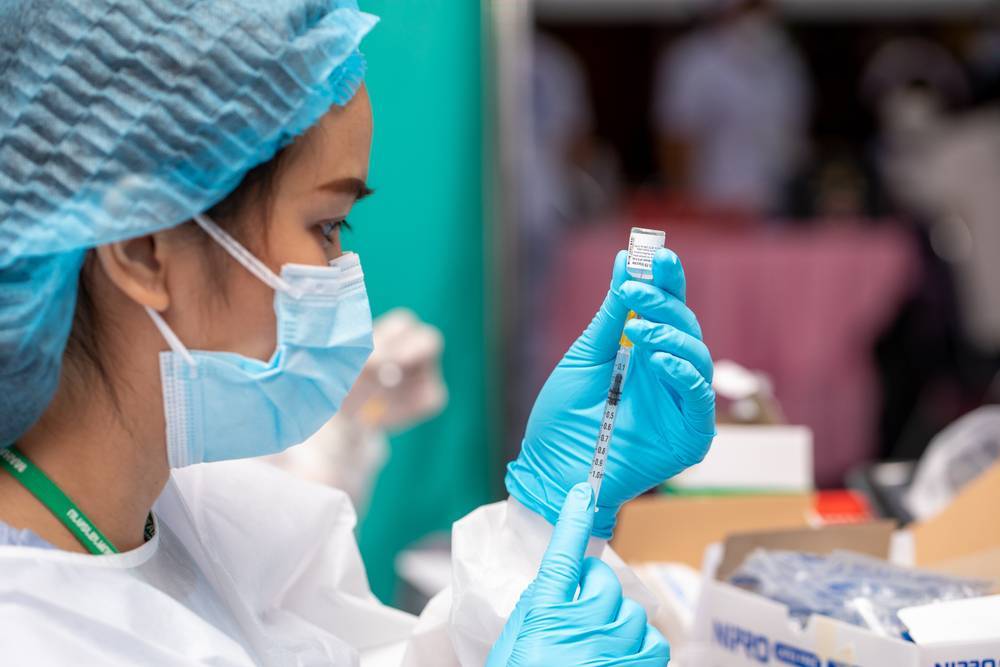Thailand’s National Vaccine Institute (NVI) and the US Vaccine Research Centre (VRC) have announced a significant partnership to develop vaccines for tuberculosis, including those using Messenger RNA (mRNA) technology.
This partnership was unveiled following a meeting between Thailand’s Public Health Ministry officials and the VRC on April 20.
Richard Koup, the VRC deputy director, welcomed the Thai delegates. As a leading global organisation, the VRC has successfully developed 15 vaccines for various diseases, including influenza, Covid-19, Ebola, Zika fever, and tuberculosis.
Strengthening Vaccine Security
This collaboration marks a crucial step towards achieving vaccine security in Thailand through locally researched mRNA vaccines. The Thai Department of Medical Sciences and NVI are committed to working with the US VRC to create a new tuberculosis vaccine. Thailand has planned to research four types of tuberculosis and mRNA vaccines, demonstrating its commitment to health security.
Connecting with Global Research Networks
The partnership also opens doors for Thai researchers to join international tuberculosis control and research networks. This involvement will significantly contribute to worldwide efforts against the disease, as stated by Dr Pongkasem Kaimook, deputy permanent secretary of the Public Health Ministry.
Genomics: The Future of Medicine
Data from the Department of Medical Sciences highlights that 17 agencies have contributed to the Genomics Thailand Strategy Roadmap (2022-2025) to develop genomic medicine. Over the years, medical professionals have recorded the genomic information of more than 50,000 patients suffering from rare diseases or cancers, signalling the future of medicine.
The Public Health Ministry intends to include genomic medicine in the universal health scheme. Yet, as Dr Pongkasem highlighted, we need more medical staff and researchers in the fields of medical genetics and bioinformatics. The goal is to have 725 medical staff working in these fields by 2024.
International Support for Genomics Development
The National Human Genome Research Institute (NHGRI) of the United States is expected to attend the International Conference of the Genetics Society of Thailand. There, they will provide training for genomic code analysis. Furthermore, Thailand has received funding from the NHGRI for genomics development, further strengthening the nation’s efforts in this crucial area of medical research.
Medical Perspective
This collaboration between Thailand and the US is a significant development in the fight against tuberculosis. It is a disease that continues to impact large populations, particularly in Asia. Tuberculosis, caused by the bacteria Mycobacterium tuberculosis, remains one of the top 10 causes of death worldwide. The World Health Organization estimates that each year, TB makes 10 million people fall ill.
The development of an mRNA vaccine for tuberculosis could potentially revolutionise treatment. This is because mRNA technology can stimulate a strong immune response. Additionally, it is faster and cheaper to produce than traditional vaccines. This partnership, therefore, represents an important step in enhancing global health security.
Moreover, the focus on genomic medicine in Thailand aligns with the global trend towards personalised medicine. Genomics can provide significant insights into disease risk and treatment responses, ultimately leading to more targeted and effective therapies. However, the development of this field requires significant resources, including skilled medical staff and sophisticated data analysis, reinforcing Dr Pongkasem’s call for more professionals in medical genetics and bioinformatics.
Overall, this collaboration signifies progress in both vaccine development and genomic medicine, potentially heralding a new era in healthcare in Thailand and beyond.

